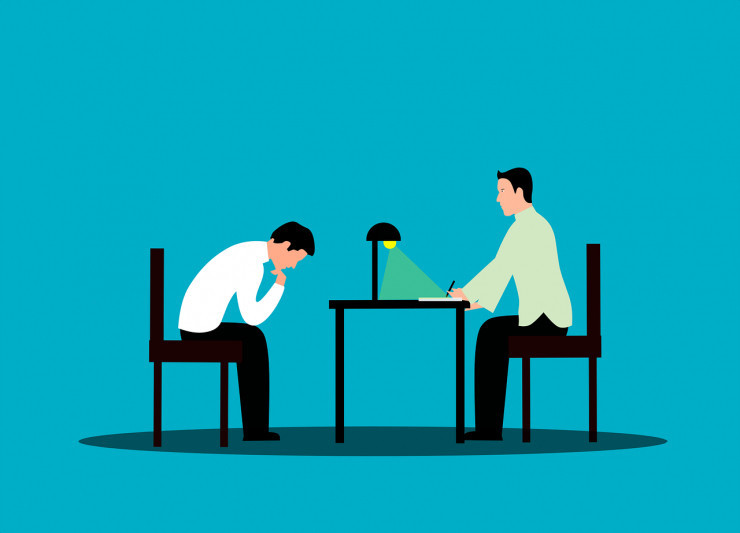After authorisation of table games: SPD calls for providers to contribute to therapy costs

The Schleswig-Holstein Ministry of the Interior recently announced that four gambling companies have been granted a licence to provide classic casino games in the state. It was foreseeable that it would not take long for this issue to spark a debate. Now the SPD, which is in opposition in Schleswig-Holstein, has voiced criticism of the licensing. The plan being pursued by the state government is cynical, the danger of a further increase in gambling addiction is being underestimated and it is primarily about tax revenue. The proposal: providers should contribute to therapy costs.
The recent granting of four licences for online table games in Schleswig-Holstein (SH) has reignited the gambling debate. BluBet, Cashpoint, Skill On Net and Tipico are the providers that are now officially authorised to provide classic games such as roulette and blackjack on their platforms for the northernmost federal state.
This marks another milestone in the implementation of the State Treaty on Gambling (GlüStV) of 2021, as SH is actually the first state to allow such games. It should be noted that the GlüStV has created the framework for legal online gambling. In contrast to slot machines, which are regulated nationwide, however, state-specific and comparatively restrictive provisions apply to online table games.
In this mixed situation, the SPD, currently in opposition in Schleswig-Holstein, has come out with harsh criticism: it sees the authorisation of casino games as a serious threat to player protection and accuses the state government of primarily aiming for high tax revenues. The Social Democrats are even suggesting that the providers of the now authorised table games should be held more accountable in order to counteract the growing problem of gambling addiction. One specific suggestion from MP Marc Timmer is: ‘How about gambling providers contributing to the costs of therapy?’
The state government argues that it has a canalisation mandate, while the opposition sees tax revenues as the main priority
The debate surrounding the licensing of casino games in Schleswig-Holstein is dominated by a central conflict: while the state government defends legalisation as a measure to channel gambling, the opposition - above all the SPD - primarily sees economic motives at the forefront.
In this context, Interior Minister Sabine Sütterlin-Waack (CDU) emphasises that legalisation should help to remove gamblers from the grey area of illegal casinos. In doing so, she is apparently not only focussing on the issue of market regulation, but also on player safety. The fact is: In unregulated gambling, there are no or comparatively few mechanisms to combat gambling addiction or preventive measures or consumer protection regulations.
However, the opposition, led by the SPD, takes a critical view of this argument. MP Marc Timmer describes the state government's approach as ‘cynical’ and accuses the CDU-led coalition of being primarily interested in the revenue from gambling taxes. Timmer's criticism is aimed at the fact that a broader offer - whether regulated or not - increases the availability of gambling and thus also the risk of an increasing gambling addiction rate. In particular, advertising for gambling, which is omnipresent in many areas, especially in professional sport, increases the problem according to Timmer.
Timmer therefore proposes making gambling providers financially liable. One of the SPD's concrete proposals is for licence holders to contribute to the therapy costs incurred in the treatment of gambling addiction. The conclusion of the Social Democrats is therefore that those who profit from the enormous profits of the gambling market also have a responsibility towards others who are jeopardised by these offers. The high social costs caused by gambling addiction - for example in the form of family conflicts, social decline or mental illness - should not be passed on to the state alone, the proposal further concludes.
Conclusion
At its core, the debate surrounding the authorisation of online table games in Schleswig-Holstein reveals a deep (political) conflict of interests between the state government and the opposition. Both sides have legitimate arguments: on the one hand, regulation is an effective means of protecting players and maintaining control over the market, while on the other hand, there is a real danger that an expanded offering could exacerbate the problem of gambling addiction.
Finally, it is important to emphasise that gambling providers are already legally obliged to be socially committed. Pursuant to Section 6 GlüStV, they must implement a social concept that includes preventive measures against gambling addiction, self-exclusion, staff training and financial contributions to addiction prevention and research. This means that providers share responsibility for mitigating the negative consequences of gambling for society. Marc Timmer's proposal goes a little further, of course.Image source: https://pixabay.com/vectors/patient-psychologist-therapy-7408733/

0 Comments to: After authorisation of table games: SPD calls for providers to contribute to therapy costs
Our community thrives on your feedback - so let us know what you think!
Would you like to write comments on GambleJoe yourself? Then just create a GambleJoe User Account.